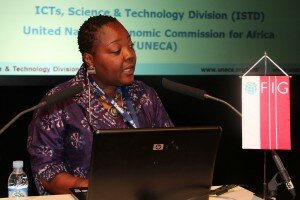
Aida Opoku-Mensah http://www.fig.net
According to the UNCTD’s Information Economy Report 2012, developed countries are gradually catching up in the information and communication technology (ICT) software and services subs-sectors, which are dominated by the developed countries of the world.
"Software production can contribute to the structural transformation of economies - that is, wean them away from dependence on low-technology goods and on a limited number of products for export," the report stated.
It noted the pace is slow as a result of mitigating factors such as piracy, poor ICT infrastructure and inadequate protection of intellectual property rights. These, the report stated, form major obstacles for ICT software development and service expansion in regions such as Africa.
It also noted the scarcity of venture capital as the biggest challenge the software industries in Africa and the Middle East are facing.
The report urges governments to support the software sector by enacting and enforcing policies and measures that will bring about a holistic development of affordable ICT infrastructure and introduce legal frameworks that will secure rights to intellectual properties.
Aida Opoku-Mensah, Director of the ICT and Science and Technology Division of the UN Economic Commission for Africa (UNECA), said: "Software development is strategic for Africa's development as it offers a lot of opportunities."
Opoku-Mensah added that if firms can adapt software to local contexts, they can effectively manage resources and obtain information more efficiently. It can also help them in setting up business operations that are cost-effective.





















































